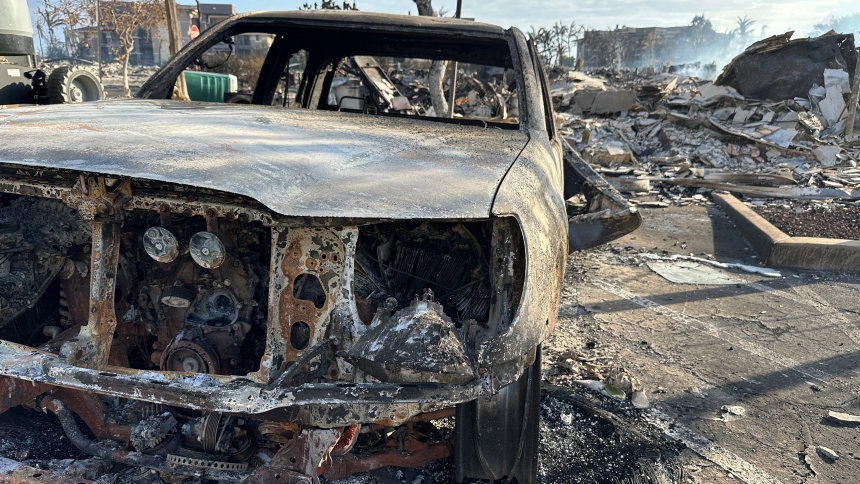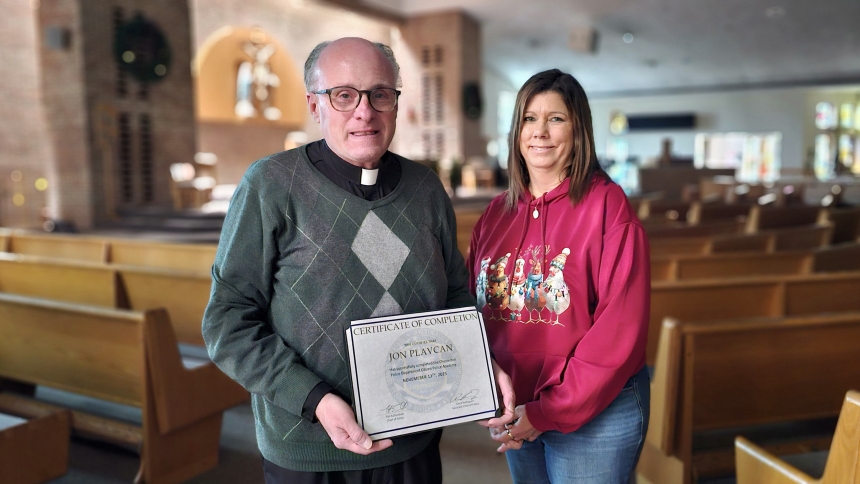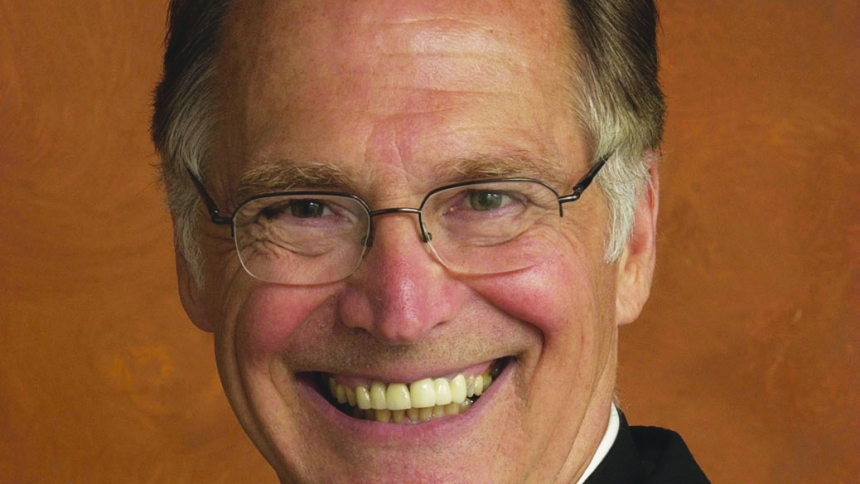
HONOLULU (OSV News) - The devastation wrought by the wildfires in West Maui last year is unmatched in recent history.
The death toll from the blaze that tore through Lahaina on Aug. 8, 2023, stands at 102. Thousands of people continue to struggle to find housing and other resources. Many families have been forced to move elsewhere in the state or to the mainland because staying proved too big a challenge.
Despite the immense challenges that persist, optimism for the future also endures.
It has to, said Toni Rojas, director of Maui disaster relief for the Hawaii Catholic Community Foundation -- "for our survivors, our community and our island of Maui."
The foundation was among the many organizations that worked quickly to respond to survivors' needs in the immediate wake of the wildfire. Rojas was appointed by the foundation soon after the disaster to oversee recovery efforts, including the urgent demand for financial assistance and basic supplies.
Overwhelmed with aid applications, she soon received help in vetting applications and coordinating financial distribution.
Rojas said she and others who assisted families "became case managers of sorts, listening to their difficult financial situation and often, their personal experience" on Aug. 8.
"There was loss of loved ones, to critically ill survivors, treading water in Lahaina Harbor, to not knowing if the line of vehicles trying to escape from Lahaina would ever clear," she said.
Rojas credited the presence of other entities - from the Diocese of Honolulu to mainland organizations and local groups, the government to grass-roots teams, nonprofits to individuals - as being part of the overall response that provided material and financial resources to Lahaina residents.
Catholic Charities Hawaii also played a key role in providing many types of support for wildfire survivors.
According to Tina Andrade, the agency's chief operating officer who lived on Maui for many years, the organization has provided financial and psychological support as well as disaster case management to give survivors a voice in the type of support they need.
Despite efforts by multiple agencies, "significant gaps in assistance and resources persist within the community," Andrade told the Hawaii Catholic Herald, Honolulu's diocesan newspaper. "The road to recovery is long."
Catholic Charities Hawaii is maintaining its support through a long-term recovery group that will work with its disaster case management team to tailor financial assistance to individuals and families.
One year after the wildfire, the three biggest needs now are housing, financial assistance and mental health support, Rojas said.
The hope is to coordinate a spiritual and wellness fair along with community organizations "where we can provide all the resources to support mental health and the road to recovery," she said. "This certainly would be something we would like to offer throughout the year as surviving households are working through so very many recovery challenges at various times."
One initiative that will come to fruition soon is a mental health support office that will be housed at the temporary Kaanapali campus for Sacred Hearts School, the Lahaina parochial school that was heavily damaged by the wildfire. Its mother church, Maria Lanakila, was miraculously spared save for some smoke damage.
The Hawaii Catholic Community Foundation is working with Catholic Charities Hawaii to manage the office, which will serve the broader West Maui community in addition to the school.
The foundation is also maintaining several funds to help survivors, one of which specifically aims to help Sacred Hearts families with tuition. It's nearly halfway to its $4 million goal.
One year after the wildfire, Sacred Hearts School is also in a different place -- both literally and figuratively.
Mere weeks after its campus was heavily damaged in the deadly fire, Principal Tonata Lolesio and the school's staff and teachers oversaw a swift relocation to Sacred Hearts Mission Church in Kapalua, the mission church of Maria Lanakila.
Students began learning on a modified schedule in large tents on the grounds of the church; the setup sufficed but was no replacement for an actual campus environment.
Thanks to the quick and innovative work of the Diocese of Honolulu, the generosity of donors and organizations, and the steadfastness of the school community, Sacred Hearts School began the academic year Aug. 5 at its new temporary campus in the middle of the Kaanapali resort.
The $2.5 million site includes features that have been missing for a year, such as an early learning center, dedicated outdoor playing space and enclosed learning areas.
At an open house in June, Lolesio recalled, about two dozen families of both new and returning students got a glimpse of the campus, which she described as situated atop a hill overlooking the resort.
Lolesio said the children immediately ran to desks and sat at them, marveling, "Look, it's a desk! A chair! Oh my goodness, there's air conditioning!"
While these are basic amenities for most students, the Sacred Hearts children "haven't had those things for a whole year," she said. "To get back to a normal classroom setting, the kids are amazed and absolutely grateful."
Both students and parents were also grateful that Sacred Hearts School continued to operate despite the circumstances, Lolesio said.
For parents, knowing their children were being cared for "was really reassuring for them, especially after what they had gone through," Lolesio said. "They expressed at the end of the school year that the school was there for them when they really needed it the most."
And while students complained constantly that the mission church grounds weren't a "real school," Lolesio said that "they learned and they thrived and at the end of the school year, they were hugging on their teachers tighter than any other last day of school."
They were thankful for their teachers and for a "second home, a second ohana" to look out for them and care for them.
One bright spot amid the tragedy has been how the larger Maui community has shown its support and rallied behind survivors and the recovery effort.
Msgr. Terry Watanabe, pastor of St. Anthony Church in Wailuku and vicar forane of the Maui-Lanai Vicariate, said the Catholic community in the vicariate has been generous and supportive, especially as Maria Lanakila parishioners were displaced from their physical and spiritual homes.
At St. Anthony, for example, "we have welcomed the people of Lahaina and Maria Lanakila to our parish and our Wailuku/Kahului community," he said.
"The Maria Lanakila community has been incredible in their coming together to support and care for one another. Every one of them is a hero in my eyes."
The vicariate has also seen greater unity as it has worked together for the good of the church in Lahaina, Msgr. Watanabe said.
"The drive and love for Lahaina is real, no matter what part of Maui you live on," Rojas said. "We all cherish our aina (land) and now more than ever, we recognize how we must truly care for it through sustainable practices, and prepare intelligently for potential environmental challenges that lay ahead."
Caption: A burned car is seen at the Ho'onanea condominium complex in Lahaina on the Hawaiian island of Maui Aug. 10, 2023. Lahaina's Maria Lanakila Catholic Church was spared from the flames that wiped out most of the surrounding community on Maui Aug. 8 and 9. (OSV News photo/Jorge Garcia, Reuters)


